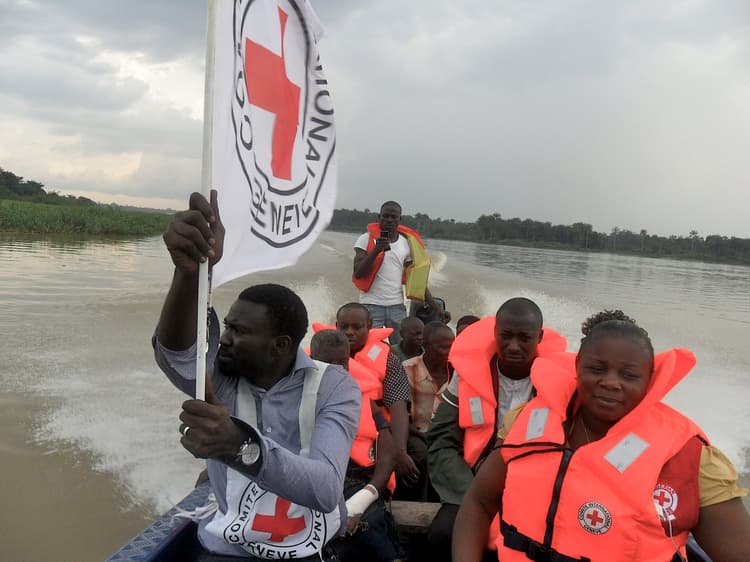Why is there a humanitarian crisis?
-
With economic opportunities lacking and basic services all but non-existent in the Sahel region, millions of people are trapped in extreme poverty.
-
Climate change is shrinking the land that can be farmed and water is increasingly scarce. Climate change is having a direct impact on people's lives in Niger. In Tillabery, in the south-west, harvests are poor and livestock do not have enough to eat. The lives and livelihoods of millions of people who depend on arable and livestock farming are under threat.
-
The conflicts raging in the Lake Chad region and in Mali are having a severe impact on people's safety and security and are driving millions to flee their homes.In northern Mali, violence and repeated armed clashes are creating an alarming humanitarian situation.
-
Until recently, most migrants from sub-Saharan Africa going to Europe travelled through the city of Agadez, in Niger. But today, their numbers have dropped sharply due to shifts in countries' migration policies. Some migrants have even ended up stuck there.
The ICRC’s response to the crisis.
The International Committee of the Red Cross (ICRC) is present in the Sahel and responds quickly and efficiently to help people affected by armed conflict. We also respond to disasters in conflict zones because the effects of a disaster are compounded if a country is already at war. Emergencies are unpredictable, so our rapid deployment capability is hugely important:
In Burkina Faso, the ICRC works closely with the Burkinabe Red Cross, in areas affected by armed violence to assists displaced people, organize cattle-vaccination campaigns and facilitate access to health care and clean water. We also visit detainees and promote respect for international humanitarian law.
In Mali, the ICRC visits detainees, puts people back in touch with loved ones with whom they’ve lost contact because of the conflict, treats people that have been wounded or injured by the fighting, distributes seed and tools to farmers, vaccinates livestock, rebuilds and reconnects water-supply systems, and raises awareness of international humanitarian law. For many of these activities, we work closely with the Mali Red Cross.
In Mauritania, the ICRC works to improve the living condition of detainees, and ensures that residents and refugees in the East have access to basic services. We also help prepare for emergencies and work with the Mauritanian Red Crescent to reunite families.
In Niger, the ICRC helps people affected by the conflict in the south-east or and those fleeing the fighting in north-east Nigeria. With the Niger Red Cross, we deliver aid, treat the wounded, provide water and support farmers. We monitor IHL compliance, protect detainees and help them maintain contact with their families.
We have generalist, detention and migration delegates in all these countries and across French-speaking Africa working to protect the lives and dignity of victims of armed conflict and other violence and provide them with assistance. Delegates’ responsibilities vary depending on the location they are assigned to and can evolve rapidly based on operational needs.
Find out more about our activities in French-speaking Africa and how you can work with us to respond to the humanitarian crisis in Africa by joining our webinar on:
May 13, 2025 13:00 CEST
REGISTER HERE FOR THE WEBINAR
The ICRC global talent pool is a database of diverse professionals that are interested in working at the ICRC. Whether you are looking for a new role or curious about our future opportunities, our team will engage you to explore your interests in working with us.
